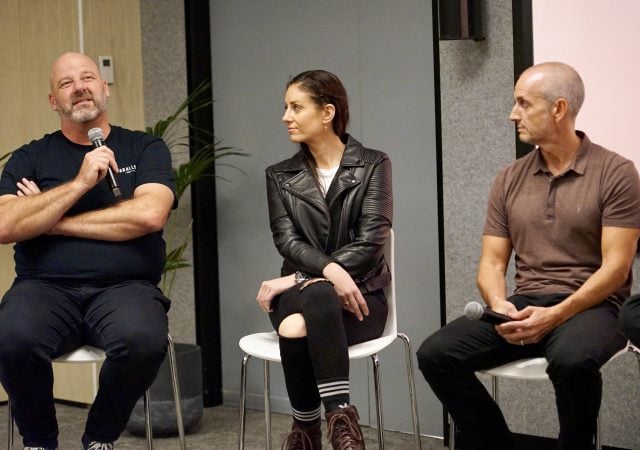The cost of personal distraction to mental health and productivity has been well documented. But less understood is the impact of distraction on SaaS startup growth.
Having your attention constantly drawn to shiny new things (or even mundane things) will have a massive impact on your ability to grow your business. It takes your focus away from your business goals and wastes your time on inconsequential things.
There’s no doubt that as a growing startup, you’re going to spend a portion your time on side projects that ultimately go nowhere. Testing fresh opportunities is all part of founder life. But there’s a major difference between allocating resources to exploring new areas and allowing your business to simply wander down any old path it fancies.
Symon Thurlow, CEO and co-founder of specialist cloud management service Parallo considers distraction to be one of the key things holding many startups back from growth. Working specifically with SaaS founders to tighten up their platform issues, Thurlow sees the same issues crop up time and time again.
“There’s four primary things to focus on: people, product, prospects, and customers,” he said at the recent Startup Daily From Idea to Unicorn event series. “If you are not focusing on those, then you’re impacting [your company’s] growth rate.”
Thurlow says that if a project isn’t differentiating you from your competitors in those four areas, you need to ask yourself, do you really need to do it?
“So all of those sort of non-productive things I think should be out,” he said, referring to outsourcing distractions. “But certainly the things that contribute to the growth of the business, the nuance of it, the bespokeness of your business should probably be in house.”

Parallo’s Symon Thurlow, Nicco Global’s Richelle Nicols and BeingIconic’s Peter Brocklebank. Image: Roberto Damante
Partnering for growth
One of the key ‘people’ areas to focus on for Thurlow is partnerships. He recognises that it’s difficult to recruit the right people, especially if you’re in a highly competitive industry like tech. As he pointed out at the event, in a period of hyper growth, your team are often overwhelmed trying to keep on top of issues with a current rollout, which distracts them from focusing on further developing your product.
“[This] slows the whole business down and causes a domino effective of badness,” said Thurlow. “If you’re in that sort of scenario, especially today, it’s pretty difficult to find the people to solve that problem for you, if you want to recruit them yourself.”
Building a solid partnership with a specialist company means you can pull business focus to exactly where it’s needed. But you’ve got to ensure that there is cultural alignment between your company and the business you’re partnering with. “If there isn’t, it’s not going to be good. It’ll end poorly,” said Thurlow.
Any customer dissatisfaction with the way your partner operates will reflect on you. So from the beginning, make sure any prospective partner has the same fundamental service values as you do.
“I think a good litmus test is [saying], hey, what if… four months into a 12-month contract, it’s not really working for us. Can we tap out? Can we do a 30, 60-day no-fault exit? And if they say no, then they’re probably worried about something. And if they say, yes, they’re probably not,” he said.
Fitting with your people
The same is true for how you should approach your team. For Thurlow, establishing a solid cultural fit right at the beginning is crucial.
“Our recruitment process has psych profiles in it and it’s a mandatory requirement,” Thurlow shared. “And if someone doesn’t want to do it, we’ll respect that and won’t proceed any further with their application.”
He was quick to point out that the profiling wasn’t a test with a pass or fail mark. Instead, it’s designed to find out more about a candidate’s work style and personal values to ensure a good match with Parallo’s expectations.
However, even the most thorough recruitment process can sometimes get it wrong. When the fit isn’t there with a team member, Thurlow advises that you don’t muck around. Tolerating a team member who isn’t pulling their weight or isn’t completely on board with your company values can distract everyone else as well.
“If you think that someone isn’t right and you should do something about it, your team already thinks it,” he said. “And they’re looking at you going, why aren’t you taking action on it? And your respect from that team is eroding, so don’t muck around.”
Decluttering your business
For Thurlow, taking this sort of action when something isn’t right is key to avoiding unnecessary distraction. It all comes down to having a process in place to ensure you’re detecting issues upfront.
He used another example of not cleaning up your ‘cloud waste’. “Pretty much everyone will be wasting money, it’s almost guaranteed. Developers, bless you, you’re fabulous at creating stuff and fabulous at leaving it behind you as you move on something else. Unfortunately, that costs money,” Thurlow shared.
“It’s not difficult to be proactive about that stuff, about getting some waste detection in place, getting some good processes to look after stuff in terms of life cycle and making sure that someone’s day job is to manage cost and it needs to be someone’s day job.”
Having this kind of decluttering process in place works in every area of your business:
- Networking events – know upfront what you plan to get out of it and if you don’t know, don’t go.
- Everyday admin – streamline them into batches so you’re working on similar tasks at the same time.
- Meetings – stick to an agenda so everyone stays focused. And try to limit meetings to urgent issues only.
- Ad-hoc time – plan time in your weekly schedule to get through random admin and ad-hoc projects. That way, you can sideline them at all other times.
- Expenses – batch expenses, cancel services you don’t need, cut back where you can. Worrying about overspending is its own unnecessary distraction.
This article is brought to you by Startup Daily in partnership with Parallo.





















Trending
Daily startup news and insights, delivered to your inbox.